What is E.A.T SEO?
Search engine optimization is a nebulous element, with many twists and turns. While you can’t yet clearly define all the elements of SEO, the concept of EAT SEO has developed based on Google’s Search Quality Rater guidelines. EAT stands for “expertise, authoritativeness and trustworthiness,” elements proven to stabilize your business (and your SEO efforts) while you develop and grow.

What is SEO Authority?
How authoritative your page is judged to be by Google, based on content and links, directly affects the ranking of your page. The SEO pillar of Authority is arguably the most important of the three pillars of EAT SEO, as it sets the stage with Google, and thus your potential readers. Ask yourself, does your page provide the right information, answer the right questions, asked by the right people? Are you adding something new to your field, or relying on repetition for your authority? There are three authority levels to consider:
- Domain authority – Search engines rank high quality and trustworthy pages higher, determining the level of authority, through careful analysis of “age and trust” and “popularity” of the domain. The longer a domain has been in use, the more credit Google gives it as a reputable source. Popularity of your domain is determined by the quality and quantity of backlinks, and the number of domains linked to your site. On-page content plays a major role in determining page relevance, a high ranking you can quickly lose by neglecting to update your content with the latest information.
- Page authority – Age, trust, value of links and timeliness of your updates will determine how much authority Google gives your page. Just as with domain authority, there is little you can do to age your page, but you can gain page authority by linking to other pages with authority. You must also update your page periodically to ensure your content doesn’t become stale or outdated, both elements that will severely affect your SEO ranking. Ask yourself, how does your page stack up against your closest competition, and how reputable and unique are your backlinks?
- Link authority – It’s critical that you link your page to other reputable pages and closely manage your links to ensure you aren’t connected to spammy or even potentially malicious sites that will drive down your SEO ranking. Google ranks links using several metrics, including:
–“Nofollow” attributes where a link isn’t credited to the original website
– Reputation (authority) of the links attached to your content
– Number of reputable links attached to your page
– Location of your links on your page

How Relevant Content helps with SEO Expertise
Expertise is a reputation that is earned through time, hard work and constant development. In SEO, expertise is an indicator of the level of knowledge or information available on your webpage, and thus in your field. Google scans for content created by subject matter experts with their own independent reputation. Generating and maintaining high-quality content standards means a consistently high SEO ranking, but how do you know what Google considers to be “quality” content? Here, we turn to the Search Quality Evaluator Guidelines: beneficial purpose, EAT, and YMYL.
Every page needs to have expertise and a beneficial purpose for the user or reader. Some pages require higher EAT levels, like low or non-YMYL pages (Your Money of Your Life pages associated with finance, health, safety or happiness), that directly impact the lives, jobs or satisfaction of readers. As with most elements of SEO, there are no hard and fast rules here. Google’s standards change constantly, as do users’ searches and expectations – and you must become comfortable with change too, if you want your site to be successful.

What is SEO Trust?
SEO Trust is all about how legitimate, accurate and reputable the content of a website is. Search engines rate the trustworthiness of a site based on who has published the content, the accuracy of the content, and even methods of contact available. For example, a website with only an email address or street address will need a higher degree of trust than other sites, as contact with the company is deemed to be complicated or impossible. It’s easy to see why a site with reproduced content, spammy links, and no contact info, would be ranked significantly lower than other sites.
How to Improve EAT
Now that you have an idea of what EAT is, it’s critical that you learn how to implement what you’ve learned. There are many easy steps you can take to improve your EAT ranking, including:
Build Links – but be sure to build them to reputable and authoritative sites. For example, if you want to build your EAT ranking for a tire company, you will want to link to reputable rubber manufacturers like Continental AG or Bridgestone Corp, over sites that throw in the keyword “rubber,” but aren’t trusted in the rubber industry as any type of authority.
Keep Content Up to Date – this is especially critical for YMYL websites, where financial or medical advice changes often, and should be updated on a regular basis. Outdated information is the kiss of death for a website, as a shining beacon of your lack of attention to detail and lack of authoritative supporting links, articles or experts.
Get More Reviews – the more reviews you have, the more you will get. It’s important to let users review your site or product on any platform they wish, rather than funneling them to a single site, like TrustPilot or the Better Business Bureau. More reviews on more sites means more independent word-of-mouth about your product and business, with will positively affect your SEO ranking in time!
Use or Hire Experts – you can actually hire experts to create reputable and rank-worthy content for your site, or use your experts to contribute to other reputable sites, and build links to your own. Experts bring with them a certain amount of respectability in the real-world, and this bleeds over into the world of IoT.
Flash your credentials – your site is the one and only place where it’s non negotiable to do a bit of bragging. If you or your experts have unique experience, a PhD or any other brag-worthy award or honor, bring it out on your website and link to any reputable organizations or sites you are associated with. You may only have one chance to convince a potential customer that you are a subject matter expert, and you can’t miss this opportunity.
Show contact details – as we discussed previously, you must make yourself available on your site. Google will search for your contact details, and will rank your page dependent on what details you have available. For example, if you make it difficult for customers to reach you by providing a single email address, your site will be ranked lower, with the other fly-by-night and potentially disreputable sites with no customer service.
Get a Wikipedia Page – considering how difficult it is to get a Wikipedia page, it’s critical that you try for one, or at the very least link to companies with a page, or directly to Wikipedia itself. Many people use Wikipedia as a go-to source for information about company awards, recognition or even just reputation.
Audit your brand – take a look at how your brand is performing against your closest competition, and determine what steps you must take to improve your results. Do you see third-parties linking to your page? Are publications, blogs or other websites citing you or writing reviews? How are other companies in your space performing, and what are they doing differently?
Promote Offsite – if we’ve learned nothing, we should take away the importance of having your reputable content hosted on other sites, where you can reach a different audience. Share on social media and email, sure, but to really get a great SEO ranking, you’ll need to get your content on other reputable sites, and create a buzz.
We can expect to see EAT SEO to play a bigger role in the future, with analysis and ranking getting ever more automated and complex. Daily advancements in speech recognition, mobile optimization, AI and machine learning are all pushing us toward an uncertain, if not exciting future of SEO. For now, stay up to date, and work on incorporating the EAT framework into your SEO approach, and position yourself for future success.
Want Insight on your SEO?
Fill out the form below to request a complementary evaluation of your digital marketing today.


